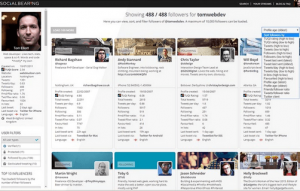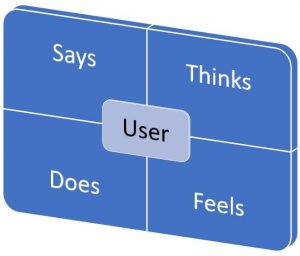Logistics may seem old-fashioned in a tech landscape full of digital services and sharing-economy platforms. For example, there is no unified fleet of Uber drivers. Instead, logistics are handled by individual users of the app with their personal resources. With the rise of the platform economy, it may seem logistics no longer fits.
Logistics Still Relevant
Then, there is the consumer’s experience. It may seem like no physical products are use when they’re paying for a music streaming service, viewing an ad that keeps a free online product free, buying or trading cryptocurrency, or renting a movie from iTunes.
However, logistics are still relevant even as the economy moves online. Amazon is the biggest proof. They are running a carefully monitored empire of 75 fulfillment centers and 25 sortation centers spread across the U.S. This allows online shoppers to have more or less anything arrive on their doorstep a day or two after ordering it. Logistics allow this kind of efficient movement of physical products through the economy.
Though digital services is a growing sector, physical goods still matter to consumers. In fact, the national and global economy also care. Every year, the U.S. trucking industry moves 10.49 billion tons of freight. These goods don’t just go to mega-stores like Amazon. They also are shipped to mom-and-pop shops, niche e-commerce platforms, construction contractors and other buyers. Plus, these physical goods are also vital to other major pillars of the U.S. economy.
Addressing Inefficiencies
However, inefficiencies hinder this important industry. Many trucks drop off one load of freight and then have to drive somewhere else to pick up another load. This means that 15 to 25 percent of US trucks on the road are empty at any given time. These inefficiencies make the freight industry less effective at delivering materials. Also, this severely impact truckers themselves. They often receive little or no pay for driving an empty truck to a pick-up location.
Trucking is a dangerous industry. It has the seventh-highest mortality rate in the US according to Time Magazine. Some of that danger comes from driving empty trucks. In fact, a recent study has found that empty trucks are more than twice as likely to crash as full ones.
Also, the inefficiency problem has a significant environmental component. Unnecessary back-and-forth truck traffic increases the whole industry’s carbon footprint. Additionally, it causes unnecessary congestion and infrastructure wear.
Some of those inefficiencies stem from technological lag. TechCrunch reports that about 67 percent of shipping companies rely on paper records rather than logistical software. The U.S. tech world has been moving at a lightning pace. However, that evolution has left the logistics world behind. And, that harms truckers, retailers, and consumers.
Using Technology to Improve Logistics
Fr8 was founded by a team of blockchain and freight leaders. They realized the freight world needed a technological revolution. The company offers an interrelated suite of apps that use blockchain solutions to improve freight efficiency. Their Fr8 board is a decentralized marketplace for freight shippers and carriers. Users sign up and enter their professional credentials and freight or trucking information.
A proprietary bi-directional recommendation engine built into the platform helps users matches them with others who best suit their needs. A trucker could use the platform to both find a shipper who needs freight moved from one state from another and a different shipper who needs freight moved the other way. This minimizes empty miles. Users leave each other feedback much like eBay or Uber. Therefore, each profile develops a ranking that users can consider when making partnerships.
This platform circumvents traditional (fee-heavy) broker arrangements. It offers increased efficiency with drastically lowered costs. The entire platform runs on Fr8 tokens. These are dedicated ERC20 cryptocurrencies built on the Ethereum blockchain. Users pay a fee of Fr8 tokens to access the Fr8 board. They temporarily advance Fr8 tokens as collateral for successful shipment completion.
New Processes for Logistics
Fr8 token’s smart contract and their immutable transaction ledgers ensure shipping agreements are clear and binding. Fr8 also offers value-added services. These include electronic mile logging via smartphone or IOT device, integration with other trucking apps, and financial services like credit and stake agents access. Even users who prefer not to use cryptocurrency can access to the platform.
Technology has revolutionized sectors across the country. In best case scenarios, it’s empowered employees while promoting economic development and environmental efficiency. Fr8 presents one of these best-case scenarios. They deliver a platform that allows more profitable, safer, and lower-carbon business options for drivers while optimizing the speed at which freight moves from suppliers to retailers. Fr8 is offering a public ICO in 2018.
It’s a clear sign that technology help the logistics world evolve and improve. The enhancements from new technology solutions will also increase logistics relevancy well into the future.
Business & Finance Articles on Business 2 Community(30)
Report Post


